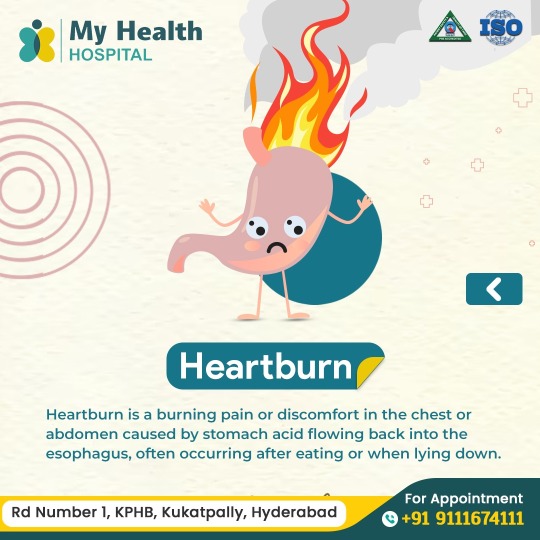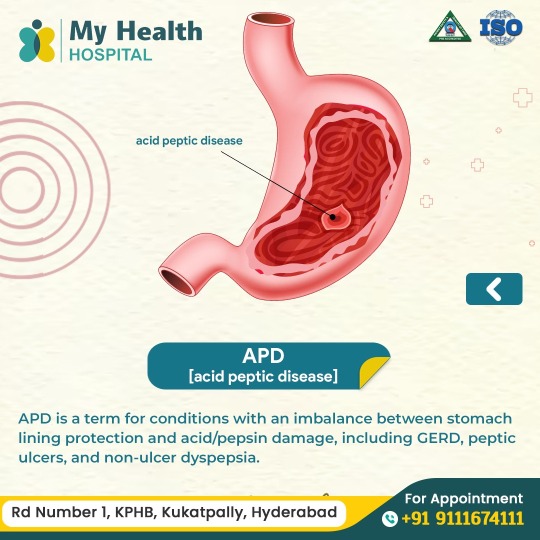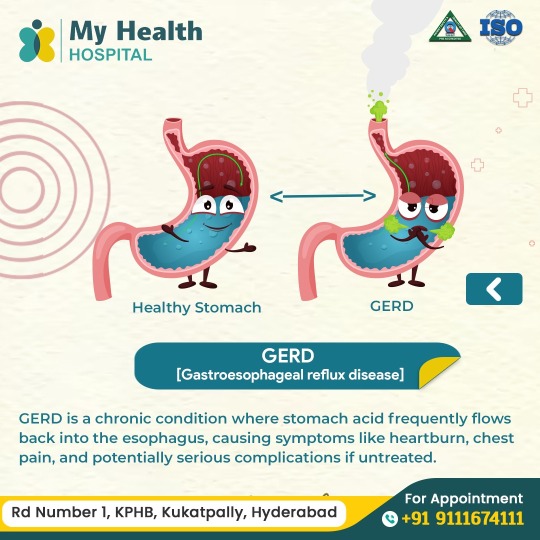#Gastroenterology Diseases
Explore tagged Tumblr posts
Text

#Gastroenterology Hospital#Gastroenterology Diseases#Gastro Doctors#Gastro Specialist#Sanar Hospital
7 notes
·
View notes
Text
Are you struggling with the challenges of ulcerative colitis? At Gastroenterology Associates of Tidewater (GATGI), our team of board-certified gastroenterologists is dedicated to providing personalized care for those battling UC. We understand that managing this condition goes beyond symptoms, offering tailored treatment plans and compassionate support. Don't let UC dictate your life—take charge of your health today! Schedule your appointment with GATGI in Virginia Beach or Chesapeake and start your journey toward better well-being.
#ulcerative colitis gastroenterologist#gastrointestinal disease treatment#gastroenterology virginia beach#gastroenterology associates of tidewater doctors
2 notes
·
View notes
Text
finally saw gastroenterology, and they suspect I have Celiac 🙂 yippee/sar
#disability rights#disabled#young and disabled#gastroparesis#celiac#celiac disease#motilitydisorder#chronic pain#chronically ill#gastroenterology
2 notes
·
View notes
Text

Here's the study if anyone is interested:
Dellon ES, Gonsalves N, Abonia JP, et al. International Consensus Recommendations for Eosinophilic Gastrointestinal Disease Nomenclature. Clin Gastroenterol Hepatol. 2022;20(11):2474-2484.e3. doi:10.1016/j.cgh.2022.02.017
#eosinophilic gastritis#eosinophilic disorders#rare disorders#rare disease#disease nomenclature#EoG#eosinophilic gastrointestinal disorders#eosinophilic gastroenteritis#eosinophilic disease#eosinophil#eosinophilic esophagitis#eosinophilic colitis#EoE#EGID#EGIDs#EoC#medical research#gastroenterology#chronic illness#EoN#eosinophilic enteritis#medical meme#chronically ill#chronic illness meme#Dellon et al.#International Consensus Recommendations for Eosinophilic Gastrointestinal Disease Nomenclature
6 notes
·
View notes
Text
2nd Edition of International Conference on Gastroenterology

#Gastroenterology Conferences 2024#GI Conferences 2024#Hepatology Congress#Gastro Conference 2024#Hepatology Conferences 2024#Digestive Diseases Events
2 notes
·
View notes
Text

Learn when to visit a gastroenterologist. Discover signs and symptoms that signal the need for expert care in digestive health and gastrointestinal issues.
Do Visit: https://www.healixhospitals.com/blogs/when-to-see-a-surgical-gastroenterologist:-signs-and-symptoms-to-watch-for
#When to visit a gastroenterologist#Surgical Gastroenterologist#Surgical Gastroenterology#Gastrointestinal surgery#Digestive health problems#Gastrointestinal issues requiring surgery#Symptoms of severe digestive disorders#Chronic abdominal pain#Indigestion and bloating causes#Surgery for digestive system disorders#Warning signs of GI diseases#Gastrointestinal bleeding#Role of a surgical gastroenterologist
1 note
·
View note
Text

Best Liver Doctor in Ludhiana - Dr. Nitin Behl
Dr. Nitin Behl is the best liver doctor in Ludhiana, specializing in the diagnosis and treatment of liver diseases with advanced medical care. Get personalized solutions for a healthier liver today.
#Liver Specialist Ludhiana#Best Liver Doctor#Dr. Nitin Behl#Liver Disease Treatment#Hepatology Expert#Gastroenterology Specialist#Liver Health Care#Chronic Liver Specialist#Top Doctors in Ludhiana#Advanced Liver Treatment
0 notes
Text
Your Digestive Health, Our Priority: Best Gastroenterologist in Ahmedabad
Are you experiencing digestive issues? Seeking expert care for liver problems? Look no further than Global Gastro & Liver Hospital, where our renowned gastroenterologist, Dr. Jigar Patel, provides comprehensive and compassionate care.

Why Choose Our Gastroenterologist?
Extensive Experience: With years of experience in the field, Dr. Jigar Patel has a deep understanding of digestive disorders and liver diseases.
State-of-the-Art Facilities: Our clinic is equipped with the latest diagnostic tools and technology to ensure accurate diagnosis and effective treatment.
Personalized Care: We believe in providing individualized care tailored to your specific needs and concerns.
Compassionate Approach: We understand that digestive issues can be uncomfortable and distressing. Our team is committed to providing compassionate and supportive care throughout your treatment journey.
Our Services
Diagnosis and Treatment of Digestive Disorders:
Acid reflux and heartburn
Irritable bowel syndrome (IBS)
Inflammatory bowel disease (IBD)
Celiac disease
Diverticular disease
Liver Disease Management:
Hepatitis A, B, and C
Fatty liver disease
Liver cirrhosis
Liver cancer
Endoscopy Procedures:
Colonoscopy
Endoscopy
Endoscopic ultrasound
Why Choose Us?
Expert Diagnosis: Our experienced team utilizes advanced diagnostic techniques to accurately diagnose your condition.
Personalized Treatment Plans: We tailor treatment plans to your specific needs and health goals.
Compassionate Care: We provide a supportive and empathetic environment for our patients.
State-of-the-Art Facilities: Our clinic is equipped with the latest technology to ensure accurate diagnosis and effective treatment.
Book Your Appointment Today Don't let digestive issues disrupt your life. Contact us today to schedule a consultation with Dr. Dr. Jigar Patel ( [email protected] /+91 8866577438).We're committed to helping you achieve optimal digestive health.
#Gastroenterologist in Ahmedabad#Liver Disease Treatment Ahmedabad#Functional GI disorders Specialist Ahmedabad#Best Gastroenterologist in Ahmedabad#Gastroenterology Clinic Ahmedabad
0 notes
Text
Creating innovative health solutions for individuals and populations
New Post has been published on https://thedigitalinsider.com/creating-innovative-health-solutions-for-individuals-and-populations/
Creating innovative health solutions for individuals and populations
The factors impacting successful patient care are many and varied. Early diagnosis, proper adherence to prescription medication schedules, and effective monitoring and management of chronic disease, for example, all contribute to better outcomes. However, each of these factors can be hindered by outside influences — medication doesn’t work as well if it isn’t taken as prescribed, and disease can be missed or misdiagnosed in early stages if symptoms are mild or not present.
Giovanni Traverso, the Karl Van Tassel Career Development Professor, an associate professor of mechanical engineering, and a gastroenterologist in the Division of Gastroenterology, Brigham and Women’s Hospital (BWH), is working on a variety of innovative solutions to improve patient care. As a physician and an engineer, he brings a unique perspective.
“Bringing those two domains together is what really can help transform and accelerate our capacity to develop new biomedical devices or new therapies for a range of conditions,” he says. “As physicians, we’re extremely fortunate to be able to help individuals. As scientists and engineers, not only can we help individuals … we can help populations.”
Play video
Physician, engineer, innovator Video: MIT Department of Mechanical Engineering
Traverso found a passion for this work early in life. His family lived in his father’s native Peru through much of his childhood, but left in the late 1980s at the height of the nation’s political instability, emigrating to Canada, where he began high school.
“In high school, I had the incredible opportunity to actually spend time in a lab,” he says. “I really fell in love with molecular genetics. I loved the lab environment and that ability to investigate a very specific problem, with the hopes that those developments would eventually help people.”
He started medical school immediately after high school, attending the University of Cambridge, but paused his medical training to pursue a PhD in medical sciences at Johns Hopkins University before returning to Cambridge. After completing medical school, he completed internal medicine residency at BWH and his gastroenterology fellowship training at Massachusetts General Hospital, both at Harvard Medical School. For his postdoctoral research, he transitioned to the fields of chemical and biomedical engineering in the laboratory of Professor Robert Langer.
Traverso’s research interests today include biomedical device development, ingestible and implantable robotics, and drug delivery for optimal drug adherence. His academic home at MIT is in the Department of Mechanical Engineering, but his work integrates multiple domains, including mechanical engineering, electrical engineering, material science, and synthetic biology.
“The mechanical engineering department is a tremendous place to engage with students, as well as faculty, towards the development of the next generation of medical devices,” he says. “At the core of many of those medical devices are fundamental mechanical principles.”
Traverso’s team in the Laboratory for Translational Engineering is developing pioneering biomedical devices such as drug delivery systems to enable safe, efficient delivery of therapeutics, and novel diagnostic tests to support early detection of diseases.
The heart of his work, he says, is “about trying to help others. Patients, of course, but also students, to help them see the arc of bench-to-bedside and help stimulate their interest in careers applying engineering to help improve human health.”
#1980s#arc#Biology#Biomedical engineering#Canada#career#career development#Careers#chemical#chronic disease#course#detection#development#Developments#devices#Disease#Diseases#domains#drug#drug delivery#Engineer#engineering#engineers#Environment#Faculty#Fundamental#gastroenterology#Genetics#harvard#Health
0 notes
Text
Non-alcoholic fatty liver disease (NAFLD) refers to the accumulation of excess fat in the liver, not linked to alcohol intake. It commonly affects those who are overweight or obese. Although initial stages of NAFLD might not produce significant symptoms, the condition can advance to severe liver issues, including cirrhosis, if it is not properly addressed. This overview covers essential aspects of NAFLD, including its prevalence, risk factors, stages, symptoms, diagnosis, and treatment options.
#best gastroenterologist in faridabad#gastroenterology#gastroenterologist#Best Doctor for Fatty Liver in Faridabad#Best Gastro Doctor in Faridabad#Best Gastroenterologist in Faridabad#Best gastroenterologist near me#Non-Alcoholic Fatty Liver Disease
0 notes
Text
Gastroenterologist in Tirunelveli

Only if a patient is suffering from gastroenterological disorders and symptoms they must seek help from a gastroenterologist in Tirunelveli. Gastroenterologists have specialized in diagnosing and treating of complicated disease associated with the stomach, intestines and other related organs.
Some of the ailments that they are able to help include;
heartburn,
Irritable bowel syndrome (IBS),
and gallstones.
If not averted, these conditions may cause other worse conditions or exacerbate the existing conditions they are part of Acid reflux disease is characterized by the regurgitation of stomach acid into the esophagus inappropriately triggering the burning sensation of the heart and chest pain.
This condition can be managed by a gastroenterologist in Tirunelveli using dietary modifications and drugs. Another familiar type of large intestine disorder is called irritable bowel syndrome (IBS), which is categorized by symptoms that include stomach ache and bloating.
Only the professional diagnosis and treatment from the side of a gastroenterologist can shift you to a better way of living.
When it comes to riskier problems such as gallstones which are hardened substances that develop in the gallbladder, qualified treatment is required. Cholelithiasis may lead to the passage of severe pain and may at times necessitate an operation.
In Tirunelveli there is an experienced gastroenterologist as Dr. Kanthasami MBBS. , MD. , DM. Thus equipped, well-prepared for diagnosing and treating these disorders.
Shifa Hospital in Tirunelveli has well-equipped facilities and qualified doctors for those consumers, who need the highest quality of the provided services. Our gastroenterologist Dr. Kanthasami’s consultation is devoted to understand the patient’s needs and design thorough treatments for proper digestion.
If you only have some small problems with your stomach or there are more serious disorders, Shifa Hospital and Dr. Kanthasami are here to assist you during your healing process. Thus, if you have a need for a gastroenterologist in Tirunelveli, you should better turn to Dr. Kanthasami at Shifa Hospital.
#hospital#health#healthcare#health tips#health & fitness#healthylifestyle#shifahospitals#tirunelveli#health and wellness#gastrologist#gastroenterology#gastroenterologist#acid reflux#gallstones#irritable bowel syndrome#irritable bowel disease
0 notes
Text
Gastroparesis is a complex condition that affects the stomach's ability to empty. In this blog, we explore what causes gastroparesis, its symptoms, and how it impacts daily life. Learn about gastrointestinal disease treatment options and how to manage this condition effectively for better quality of life.
#what causes gastroparesis#gastrointestinal disease treatment#gastroesophageal reflux disease symptoms#gastroenterology virginia beach#gi associates doctors#gastroenterology associates of tidewater
2 notes
·
View notes
Text
Looking for a Trusted Digestive Health Specialist in Arizona? Look No Further Than DIA!
At Digestive Institute of Arizona (DIA), we're passionate about providing exceptional gastroenterology care to patients throughout Arizona. Our team of experienced and board-certified doctors, nurse practitioners, and staff are dedicated to offering personalized treatment plans that address your unique needs. Here's what sets DIA apart:
Advanced Technology: We utilize the latest advancements in medical equipment to ensure accurate diagnosis and effective treatment.
Comprehensive Care: We offer a wide range of services to address various digestive conditions, including Barrett's Esophagus, Crohn's Disease, Colonoscopy, ERCP, and more (list a few key services here).
Leaders in the Field: Our doctors are actively involved in research and education, staying at the forefront of gastroenterology advancements.
Comfort & Convenience: Our modern facility in Gilbert is designed for your comfort and features 9 spacious examination rooms. We offer flexible scheduling options.
Ready to take control of your digestive health?
Call us today at 602-541-1575 to schedule an appointment.
Visit our website: https://digestiveinstituteaz.com/ for more information about our services, doctors, and patient resources.
We are conveniently located in Gilbert, AZ: 3011 S. Lindsay Rd Bldg 6 Ste 115, Gilbert AZ 85295.
#center for digestive health#digestive health doctors in Arizona#gastroenterology clinic in arizona#center for digestive disease
0 notes
Text
#gastrointestinal mckinney#gastrointestinal#gastrointestinal treatment mckinney#gastrointestinal disease#gastrointestinal tract#gastroenterology#mckinney texas#mckinney#health center
0 notes
Text
Title: The Evolution in Probiotic Therapy

#gastro#vegan#“ ”gluten-free#“ ”desserts#“ ”Italian cuisine#“ or ”quick meals“ to help users find specific types of content.#Restaurant Review Platforms: Platforms like Yelp or TripAdvisor might use tags to help users find restaurants that match certain criteria#such as#sushi#“ ”burgers#“ ”healthy#“ ”family meals#“ or ”late-night.“#Cookbooks and Magazines: Tags help in organizing recipes and articles into easily searchable topics such as#“Gastro” is a shorthand that can refer to various topics related to the digestive system#food#or gastrointestinal medicine. Here are a few different contexts in which the term “gastro” might be used:#1. Gastroenterology#Gastroenterology is a branch of medicine focused on the digestive system and its disorders. Gastroenterologists diagnose and treat conditio#including:#Esophagus#Stomach#Small and large intestines#Liver#Gallbladder#Pancreas#Common conditions treated by gastroenterologists include:#Gastroesophageal reflux disease (GERD)#Irritable bowel syndrome (IBS)#Crohn's disease
0 notes
Text
Heartburn vs. GERD vs. APD: Understanding the Differences
Digestive issues are common, but distinguishing between similar symptoms can be challenging. Heartburn, GERD (Gastroesophageal Reflux Disease), and APD (Acid Peptic Disorders) are often confused due to overlapping symptoms. Here, we break down the key differences to help you understand and manage these conditions effectively.
1. Heartburn:
Definition: Heartburn is a burning sensation in the chest, often behind the breastbone, caused by stomach acid refluxing into the esophagus.
Symptoms: Burning chest pain, often after eating or at night, regurgitation of acidic or bitter-tasting fluid into the throat.
Causes: Weakening of the lower esophageal sphincter (LES), which normally prevents stomach acid from flowing back into the esophagus.
Triggers: Spicy or fatty foods, caffeine, alcohol, smoking, obesity, pregnancy.
Treatment: Antacids for immediate relief, lifestyle changes (elevating the head of the bed, avoiding trigger foods), medications to reduce acid production (H2 blockers, proton pump inhibitors).
Complications: Occasional heartburn is common and usually harmless, but frequent or severe heartburn can indicate GERD.
2. GERD (Gastroesophageal Reflux Disease):
Definition: GERD is a chronic condition where stomach acid frequently flows back into the esophagus, leading to complications.
Symptoms: Persistent heartburn, regurgitation, chest pain, difficulty swallowing, chronic cough, hoarseness, asthma-like symptoms.
Diagnosis: Based on symptoms, medical history, and tests such as endoscopy, pH monitoring, or esophageal manometry.
Complications: Esophagitis (inflammation of the esophagus), Barrett's esophagus (precancerous changes in the esophagus), strictures (narrowing of the esophagus), respiratory problems.
Treatment: Lifestyle changes (diet modification, weight loss, avoiding trigger foods), medications (proton pump inhibitors, H2 blockers), surgery (fundoplication) in severe cases.
3. APD (Acid Peptic Disorders):
Definition: APD is a group of conditions characterized by an imbalance between acid production and the protective mechanisms of the stomach and duodenum.
Types: Peptic ulcer disease (ulcers in the stomach or duodenum), gastritis (inflammation of the stomach lining), gastroesophageal reflux disease (GERD).
Symptoms: Abdominal pain, bloating, belching, nausea, vomiting, heartburn.
Causes: H. pylori infection, NSAIDs (nonsteroidal anti-inflammatory drugs), stress, smoking, alcohol.
Diagnosis: Based on symptoms, medical history, endoscopy, stool tests, or breath tests for H. pylori.
Treatment: Antibiotics for H. pylori eradication, acid-suppressing medications, antacids, lifestyle modifications.
In Conclusion: Heartburn, GERD, and APD share common symptoms but differ in terms of severity, frequency, and potential complications. While occasional heartburn is normal, persistent symptoms should not be ignored. Consult a healthcare professional for an accurate diagnosis and appropriate management plan tailored to your condition. Managing these conditions effectively can improve your quality of life and prevent complications.



#heartburn#gerd#apd#gastroenterology#ulcers#stomach ulcers#acid peptic disease#best gastroenterologist in kphb hyderabad#best gastroenterology hospital in hyderabad#surgical gastroenterologist in india
0 notes